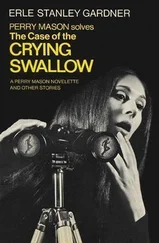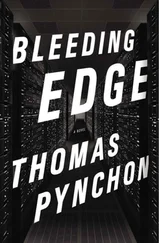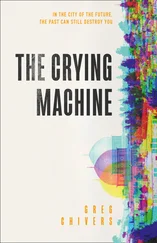"Who cares?" Fallopian shrugged. "We don't try to make scripture out of it. Naturally that's cost us a lot of support in the Bible Belt, where we might've been expected to go over real good. The old Confederacy.
"But that was the very first military confrontation between Russia and America. Attack, retaliation, both projectiles deep-sixed forever and the Pacific rolls on. But the ripples from those two splashes spread, and grew, and today engulf us all.
"Peter Pinguid was really our first casualty. Not the fanatic our more left-leaning friends over in the Birch Society chose to martyrize."
"Was the Commodore killed, then?" asked Oedipa.
Much worse, to Fallopian's mind. After the confrontation, appalled at what had to be some military alliance between abolitionist Russia (Nicholas having freed the serfs in 1861) and a Union that paid lip-service to abolition while it kept its own industrial laborers in a kind of wage-slavery, Peter Pinguid stayed in his cabin for weeks, brooding.
"But that sounds," objected Metzger, "like he was against industrial capitalism. Wouldn't that disqualify him as any kind of anti-Communist figure?"
"You think like a Bircher," Fallopian said. "Good guys and bad guys. You never get to any of the underlying truth. Sure he was against industrial capitalism. So are we. Didn't it lead, inevitably, to Marxism? Underneath, both are part of the same creeping horror." "Industrial anything," hazarded Metzger.
"There you go," nodded Fallopian.
"What happened to Peter Pinguid?" Oedipa wanted to know.
"He finally resigned his commission. Violated his upbringing and code of honor. Lincoln and the Czar had forced him to. That's what I meant when I said casualty. He and most of the crew settled near L.A.; and for the rest of his life he did little more than acquire " wealth."
"How poignant," Oedipa said. "What doing?"
"Speculating in California real estate," said Fallopian. Oedipa, halfway into swallowing part of her drink, sprayed it out again in a glittering cone for ten feet easy, and collapsed in giggles.
"Wha," said Fallopian. "During the drought that year you could've bought lots in the heart of downtown L. A. for.63 apiece."
A great shout went up near the doorway, bodies flowed toward a fattish pale young man who'd appeared carrying a leather mailsack over his shoulder.
"Mail call," people were yelling. Sure enough, it was, just like in the army. The fat kid, looking harassed, climbed up on the bar and started calling names and throwing envelopes into the crowd. Fallopian excused himself and joined the others.
Metzger had taken out a pair of glasses and was squinting through them at the kid on the bar. "He's wearing a Yoyodyne badge. What do you make of that?"
"Some inter-office mail run," Oedipa said.
"This time of night?"
"Maybe a late shift?" But Metzger only frowned. "Be back," Oedipa shrugged, heading for the ladies' room.
On the latrine wall, among lipsticked obscenities, she noticed the following message, neatly indited in engineering lettering:
"Interested in sophisticated fun? You, hubby, girl friends. The more the merrier. Get in touch with Kirby, through WASTE only, Box 7391, L. A." WASTE? Oedipa wondered. Beneath the notice, faintly in pencil, was a symbol she'd never seen before, a loop, triangle and trapezoid, thus:

It might be something sexual, but she somehow doubted it. She found a pen in her purse and copied the address and symbol in her memo book, thinking: God, hieroglyphics. When she came out Fallopian was back, and had this funny look on his face.
"You weren't supposed to see that," he told them. He had an envelope. Oedipa could see, instead of a postage stamp, the handstruck initials PPS.
"Of course," said Metzger. "Delivering the mail is a government monopoly. You would be opposed to that."
Fallopian gave them a wry smile. "It's not as rebellious as it looks. We use Yoyodyne's inter-office delivery. On the sly. But it's hard to find carriers, we have a big turnover. They're run on a tight schedule, and they get nervous. Security people over at the plant know something's up. They keep a sharp eye out. De Witt," pointing at the fat mailman, who was being hauled, twitching, down off the bar and offered drinks he did not want, "he's the most nervous one we've had all year."
"How extensive is this?" asked Metzger.
"Only inside our San Narciso chapter. They've set up pilot projects similar to this in the Washington and I think Dallas chapters. But we're the only one in California so far. A few of your more affluent type members do wrap their letters around bricks, and then the whole thing in brown paper, and send them Railway Express, but I don't know…"
"A little like copping out," Metzger sympathized.
"It's the principle," Fallopian agreed, sounding defensive. "To keep it up to some kind of a reasonable volume, each member has to send at least one letter a week through the Yoyodyne system. If you don't, you get fined." He opened his letter and showed Oedipa and Metzger.
Dear Mike, it said, how are you? Just thought I'd drop you a note. How's your book coming? Guess that's all for now. See you at The Scope.
"That's how it is," Fallopian confessed bitterly, "most of the time."
"What book did they mean?" asked Oedipa.
Turned out Fallopian was doing a history of private mail delivery in the U.S., attempting to link the Civil War to the postal reform movement that had begun around 1845. He found it beyond simple coincidence that in of all years 1861 the federal government should have set out on a vigorous suppression of those independent mail routes still surviving the various Acts of '45, '47, '51 and '55, Acts all designed to drive any private competition into financial ruin. He saw it all as a parable of power, its feeding, growth and systematic abuse, though he didn't go into it that far with her, that particular night. All Oedipa would remember about him at first, in fact, were his slender build and neat Armenian nose, and a certain affinity of his eyes for green neon.
So began, for Oedipa, the languid, sinister blooming of The Tristero. Or rather, her attendance at some unique performance, prolonged as if it were the last of the night, something a little extra for whoever'd stayed this late. As if the breakaway gowns, net bras, jeweled garters and G-strings of historical figuration that would fall away were layered dense as Oedipa's own street-clothes in that game with Metzger in front of the Baby Igor movie; as if a plunge toward dawn indefinite black hours long would indeed be necessary before The Tristero could be revealed in its terrible nakedness. Would its smile, then, be coy, and would it flirt away harmlessly backstage, say good night with a Bourbon Street bow and leave her in peace? Or would it instead, the dance ended, come back down the runway, its luminous stare locked to Oedipa's, smile gone malign and pitiless; bend to her alone among the desolate rows of seats and begin to speak words she never wanted to hear?
The beginning of that performance was clear enough. It was while she and Metzger were waiting for ancillary letters to be granted representatives in Arizona, Texas, New York and Florida, where Inverarity had developed real estate, and in Delaware, where he'd been incorporated. The two of them, followed by a convertibleful of the Paranoids Miles, Dean, Serge and Leonard and their chicks, had decided to spend the day out at Fangoso Lagoons, one of Inverarity's last big projects. The trip out was uneventful except for two or three collisions the Paranoids almost had owing to Serge, the driver, not being able to see through his hair. He was persuaded to hand over the wheel to one of the girls. Somewhere beyond the battening, urged sweep of three-bedroom houses rushing by their thousands across all the dark beige hills, somehow implicit in an arrogance or bite to the smog the more inland somnolence of San Narciso did lack, lurked the sea, the unimaginable Pacific, the one to which all surfers, beach pads, sewage disposal schemes, tourist incursions, sunned homosexuality, chartered fishing are irrelevant, the hole left by the moon's tearing-free and monument to her exile; you could not hear or even smell this but it was there, something tidal began to reach feelers in past eyes and eardrums, perhaps to arouse fractions of brain current your most gossamer microelectrode is yet too gross for finding. Oedipa had believed, long before leaving Kinneret, in some principle of the sea as redemption for Southern California (not, of course, for her own section of the state, which seemed to need none), some unvoiced idea that no matter what you did to its edges the true Pacific stayed inviolate and integrated or assumed the ugliness at any edge into some more general truth. Perhaps it was only that notion, its arid hope, she sensed as this forenoon they made their seaward thrust, which would stop short of any sea.
Читать дальше













